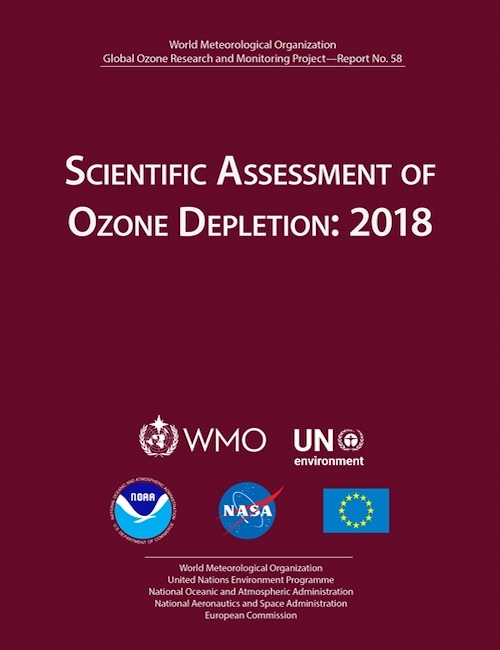A .gov website belongs to an official government organization in the United States.
A lock () or https:// means you've safely connected to the .gov website. Share sensitive information only on official, secure websites.
6 February 2019

The 2018 Assessment is a two-year endeavor carried out under the auspices of the World Meteorological Organization (WMO) and the United Nations Environment Programme (UNEP), with NOAA, NASA, and the European Commission as supporting organizations. It is the product of 200+ scientists and support staff from 32 countries who contribute to its preparation and review. NOAA scientist David W. Fahey helped lead the report as one of four international Co-chairs of the scientific panel. More than 20 NOAA or NOAA/CIRES authors contributed to the scientific content (see Appendix D of the report). CSD, GMD, PSD, and GFDL each have one or more authors or reviewers. CSD led the organization and production of the assessment documents as it has for three decades. Sarah Doherty (CIRES and the University of Washington) did an outstanding job as overall coordinator/editor and Debe Dailey-Fisher (NOAA) and Annie Reiser (NOAA) managed formatting and layout of this 590-page volume.
The Scientific Assessment of Ozone Depletion: 2018, which includes the Executive Summary released in November 2018, is prepared by the scientific community every four years in accordance with the United Nations Montreal Protocol on Substances that Deplete the Ozone Layer. This 1987 agreement and its amendments and adjustments protect Earth's ozone layer from depletion by manmade ozone-depleting substances, such as chlorofluorocarbons (CFCs) and halons. Among the findings discussed in the 2018 Assessment are:
The Assessment contributes to NOAA's mission to provide decision-relevant scientific information on atmospheric issues that pertain to the public welfare. The periodic updates of the "state of understanding" regarding the ozone layer have enabled the countries of the world to avoid harmful effects of increased surface ultraviolet radiation that would have occurred in the absence of the Montreal Protocol. The Montreal Protocol has also had co-benefits for climate, because most ozone-depleting substances are also greenhouse gases. The UNEP Ozone Secretariat also serves a copy of the report for the Scientific Assessment Panel (SAP).